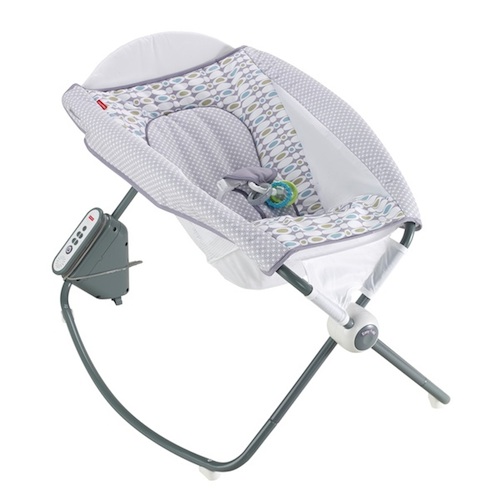Love on the rocks

When you have a wee one on the way, it’s […]
When you have a wee one on the way, it’s easy (and fun!) to get caught up in all things baby. You’ve got tiny socks to launder, a mobile to hang in that half-finished nursery and a million other to-dos before you’re due. But don’t forget to focus a little time and attention on the person who helped make the bun in your oven. Like your health, your home or even a baby, relationships require continual care to keep things running smoothly.

Although you have nine months to get ready for your new addition’s grand entrance, nothing prepares you for having a baby (to hold, to feed, to beg to go to sleep) quite like actually having a baby. And while there’s plenty to love about your bundle, you’ll soon learn that she changes everything—including your marriage.
The hardest part for Tatiana Gurubatham, mom of two in Atlanta and blogger at Flora & Fauna, was the lack of sleep. “No one is going to be in top form when running on two or three hours of sleep, and inevitably our weaknesses begin to show, sometimes resulting in impatience and tiffs,” she says. “It’s hard to be your ‘best self’ when you feel like you’re sleepwalking.”
When “we” becomes three, you’re operating on less Zs, a tighter budget and what feels like fewer hours in a day. In fact, the only thing there seems to be more of is laundry. Plus, postpartum recovery and hormones don’t make things any easier.
With all those stressors, it’s no wonder nearly 70 percent of couples report a drop in relationship satisfaction in baby’s first year, according to research by relationship expert John Gottman, PhD. His studies also found that conflict increases eightfold during the same time frame. Ouch.
All couples will hit some bumps in the road, but taking care of your relationship is important—for you and your baby. According to Carolyn Pirak, LCSW, founding director of the Gottman Institute’s Bringing Baby Home program, a couple’s emotional connection is the foundation for a baby’s development. “When [mom and dad’s] relationship is withdrawn or full of conflict, it can have lasting negative effects on [their] child’s emotional, social and cognitive development,” she says. As for the couple, those in an unhappy relationship are more likely to experience higher levels of stress, poor decision-making skills, anger, self-consciousness, depression and more.
“Although most couples like to focus on setting up the nursery, buying car seats and taking birth classes during pregnancy, these aren’t the things that ensure that a relationship will last after a baby arrives,” Pirak warns. The good news is you can start prepping now to set your marriage up for success later, when a baby’s in the (family) picture.
You and me
Before D-day, bolstering your relationship is less about escaping on a lavish babymoon and more about keeping expectations realistic and lines of communication open.
“On average, there are 300 additional tasks that have to be done when a new baby arrives,” Pirak says. “Just having couples understand this fact can change the culture in their relationship from ‘me’ to ‘we.’ From this statistic, most couples realize that it’s not reasonable or possible to expect one person to do it all.”
Bridget Levy, LCPC, psychotherapist and director of business development at Urban Balance in Chicago, agrees couples should figure out the distribution of labor now rather than later. Think about who will be responsible for what, and divvy up chores fairly. Who’s going to do the grocery shopping? Who’s going to take baby to the doctor? If dad can take out the trash on his way to work, mom doesn’t have to worry about how to haul baby and garbage bag at once. Keep in mind that every plan needs flexibility. Just because mom said she’d cover night feedings doesn’t mean dad can’t jump in now and again. As long as you’re looking out for each other, you’ll avoid feeling like “just roommates.”
“I think one thing that helped our relationship survive this trying time was the fact that I made it a habit to always ask for help if I needed it,” Gurubatham says. “I knew that for the sake of my sanity and for the sake of me being a better mother to my daughter that I needed to anticipate when I was about to hit my limit and hand the reins over to [my husband].”
Another thing Levy and Pirak recommend: taking a long hard look at your expectations—because let’s face it, the house will not be spotless and dinner won’t be homemade every night. “Once parents realize this scenario is normal and that all other new parents are experiencing the same thing, it can become a source of humor and connection rather than conflict,” says Pirak.
There are a lot of unknowns in the months leading up to baby’s birth. Talking about how you see your marriage and everyday life changing can ensure you’re on the same page and working toward the same goals. Moreover, Levy notes, it also gives you a chance to get your fears and anxieties (whether it’s being a bad parent or losing your closeness) out on the table, so your spouse can help.
And baby makes three
Once babe arrives, your libido is likely lagging (mama needs to recover!), but a lack of sex doesn’t imply a lacking relationship. Based on Gottman’s research, friendship is far more important than how fiery things are between the sheets. As Pirak says, “Romance and passion don’t mean anything if the couple doesn’t like one another.”
So how do you strengthen your friendship with your spouse? One of the simplest ways, notes Pirak, is to think back to when your relationship first started. During the dating phase, couples call and text often, frequently compliment each other and share the smallest details of their days. Pirak says, “[These actions] are the key to maintaining the relationship because when the friendship is going well, decreased conflict and increased romance follow.”
She also points out new couples rarely criticize each other or focus on negative traits. (Otherwise, they’d break up pretty quickly.) Instead, Pirak says, a successful relationship must be based on a spirit of cooperation and collaboration. Remember, you’re in this together—as teammates, not opponents.
You’re both finding the balance between your roles as partner and parent, but make sure the former doesn’t get lost in transition. “When you spend the majority of the day being ‘mum,’ you can’t always just flip a switch and become ‘wife,’” says Gurubatham. “There were only so many conversations about diapers, swaddles and feeding schedules that we could handle before we needed some time to just be ‘us’ again.”
Make an effort to distinguish between family time and couple time—it doesn’t take much! Cooking a favorite meal or going for a walk together can make a huge difference. As Levy always tells couples, “If there were no you—the two of you—there would be no baby.”
When you bring home your bundle of joy, things are going to be different. Instead of trying to get “back to normal,” embrace this latest adventure you’re embarking on together. “I would say that the best thing you can do is focus on finding the good in all this change instead of mourning the past,” Gurubatham says. “Without a doubt [our relationship] became something else [after baby]—but not in a bad way. … I thought I knew everything there was to know about [my husband] before, but parenting has revealed facets of his personality that I never saw previously. And it’s been a privilege to get to watch this take place.”







